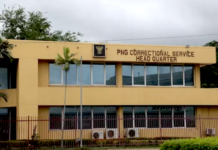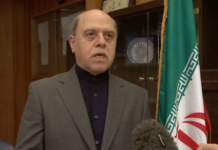
By Lillian Hanly, RNZ political reporter
Members of the King’s Counsel, some of New Zealand’s most senior legal minds, say the controversial Treaty Principles Bill “seeks to rewrite the Treaty itself” and are calling on the prime minister and the coalition government to “act responsibly now and abandon” it.
More than 40 KCs have written to the prime minister and attorney-general outlining their “grave concerns” about the substance of the Treaty Principles Bill and its wider implications for the country’s constitutional arrangements.
The bill is set to have its first reading in the House on Thursday, and has led to nationwide protests, with Prime Minister Christopher Luxon himself calling it “divisive”.
Its architect, ACT leader David Seymour, has said the purpose is to provide certainty and clarity and to “promote a national conversation about their place in our constitutional arrangements”.
“I can see why they don’t like the Treaty Principles Bill. Everyone gets a say, even if you’re not a KC,” Seymour said in a statement.
“The debate over the Treaty has until this point been dominated by a small number of judges, senior public servants, academics, and politicians.”
He said the select committee process would finally “democratise” the debate.
Co-governance, ethnic quotas
“The courts and the Waitangi Tribunal have been able to develop principles that have been used to justify actions that are contrary to the principle of equal rights. Those actions include co-governance in the delivery of public services and ethnic quotas in public institutions.
“The Treaty Principles Bill provides an opportunity for New Zealanders — rather than the courts and the Waitangi Tribunal — to have a say on what the Treaty means. Did the Treaty give different rights to different groups, or does every citizen have equal rights? I believe all New Zealanders deserve to have a say on that question,” Seymour said.
The senior members of the independent bar view the introduction of the bill (and the intended referendum) as “wholly inappropriate as a way of addressing such an important and complex constitutional issue”.
The letter states the existing principles (including partnership, active protection, equity and redress) are “designed to reflect the spirit and intent of the Treaty as a whole and the mutual obligations and responsibilities of the parties”. They say the principles now represent “settled law”.
The letter said the coalition’s bill sought to “redefine in law the meaning of te Tiriti, by replacing the existing ‘Treaty principles’ with new Treaty principles which are said to reflect the three articles of te Tiriti”.

The lawyers say those proposed principles do not reflect te Tiriti, and, by “imposing a contested definition of the three articles, the bill seeks to rewrite the Treaty itself”.
The Treaty Principles Bill, they say, would have the “effect of unilaterally changing the meaning of te Tiriti and its effect in law, without the agreement of Māori as the Treaty partner”.
Historical settlements
The proposed principle 2 “retrospectively limits Māori rights to those that existed at 1840”, they said, and the bill states that “if those rights ‘differ from the rights of everyone’, then they are only recognised to the extent agreed in historical Treaty settlements with the Crown”.
The lawyers said that erased the Crown’s Article 2 guarantee to Māori of tino rangatiratanga.
“By recognising Māori rights only when incorporated into Treaty settlements with the Crown, this proposed principle also attempts to exclude the courts, which play a crucial role in developing the common law and protecting indigenous and minority rights.”
They also explained the proposed principle 3 did not “recognise the fundamental Article 2 guarantee to Māori of the right to be Māori and to have their tikanga Māori (customs, values and customary law) recognised and protected in our law”.
They said it was not for the government of the day to “retrospectively and unilaterally reinterpret constitutional treaties”.
“This would offend the basic principles which underpin New Zealand’s representative democracy.”
They added that the bill would cause significant legal confusion and uncertainty, “inevitably resulting in protracted litigation and cost”, and would have the “opposite effect of its stated purpose of providing certainty and clarity”.
In regards to the wider process and impact of the bill, they pointed to a lack of meaningful engagement as well as the finding by the Waitangi Tribunal that the Bill was a breach of the Treaty.
The ACT Party has long argued the original articles have been interpreted by the courts, the Waitangi Tribunal and successive governments — over decades — in a way that has amplified their significance and influence beyond the original intent.
This article is republished under a community partnership agreement with RNZ.













































